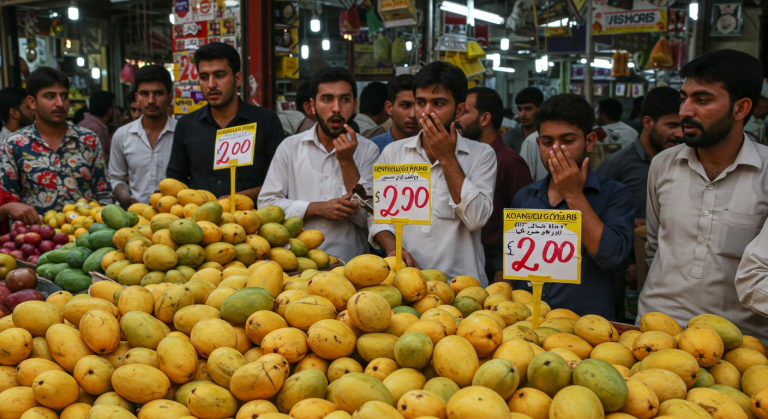Water Shortage Forces People to Protest on Roads in Karachi

Karachi: July 2025
Karachi’s residents are once again struggling with a severe shortage of clean water. The ongoing crisis has become so severe that many residents, especially from the most affected areas, have taken to the streets to demand their basic right — clean and sufficient water. With rising temperatures and poor supply, citizens are struggling daily to access water for drinking, cooking, and cleaning.
Residents Struggle for Basic Needs
For many households in Karachi, the taps have run dry for weeks. People are forced to wake up early in the morning or stay up late at night, hoping to catch a few drops of water. In some neighborhoods, water comes only once or twice a week — and only for a few minutes. Tankers, once considered a backup, are now either too expensive or unavailable.
Ahmed, a resident of Orangi Town, shared his frustration, “We are paying taxes, utility bills, and still there’s no water. My children can’t take a proper bath, and we have to buy bottled water just to cook food. This is not fair.”
Water Tanker Mafia Takes Advantage
Due to the shortage, private water tanker services are making huge profits. The cost of a single tanker has gone up to Rs. 3,000 to 4,000 — an amount unaffordable for many middle and lower-income families. Locals allege that some officials are involved in mismanaging the water supply and helping tanker mafias make money.
Saira, a school teacher in Korangi, said, “This crisis seems to be man-made. We know there’s water in the city, but it’s not reaching us. Only those who can pay to get water on time.”
Protests Across the City
As frustration grows, residents in several areas such as Baldia, Lyari, North Karachi, and Malir took to the streets. Men, women, and even children chanted slogans against the Water Board and local authorities. Roads were blocked, and traffic remained stuck for hours as people demanded immediate action.
“We have no other option,” said one protester. “We are not asking for anything extra — just water. This is our right.”
Some protesters held empty buckets and bottles as symbols of their suffering. They demanded a proper schedule for water supply and strict action against tanker mafias.
Authorities Respond with Promises
According to the statement, a new water supply schedule is being planned and efforts are being made to increase pumping from the main sources.
However, residents remain doubtful. Similar promises have been made in the past, but the situation continues to worsen. Many believe that the only long-term solution lies in overhauling the water management system and increasing transparency.
Why is Karachi Facing a Water Crisis?
Experts point out several reasons for Karachi’s water crisis:
- Old Infrastructure: The pipelines carrying water are decades old and leak large amounts of water before it reaches homes.
- Growing Population: Karachi’s population has grown rapidly, and the supply hasn’t kept pace.
- Inefficient Management: Lack of planning and corruption in water distribution are major issues.
- Dependence on Rain: Karachi relies on rainfall for some of its water supply, but the last few months have been extremely dry.
Impact on Daily Life
The water shortage is not just a minor inconvenience. It’s affecting health, hygiene, education, and even jobs. Many people are spending hours every day just trying to collect water, leaving less time for work or studies. Hospitals are also feeling the pressure, with some reporting water shortages affecting patient care.
“There is a risk of water-borne diseases like cholera and diarrhea if this continues,” warned Dr. Asma Khan, a health expert. “People are storing water in unsafe ways, and this could lead to a health emergency.”
Calls for Long-Term Solutions
Citizens and civil society organizations are urging the government to take long-term steps to solve the crisis. These include:
- Upgrading water infrastructure
- Desalination plants to convert seawater into usable water
- Public awareness campaigns about water conservation
Conclusion
The water shortage in Karachi is more than just a supply issue; it reflects a deep-rooted problem in the city’s management and planning. While protests on the streets show the people’s desperation, real change will only come with honest governance, modern infrastructure, and public participation.
As temperatures rise and taps stay dry, the citizens of Karachi wait and hope — not just for water, but for justice.


